Why does Eido exist? Hear from Tyler
Tyler Overton
Lead Researcher
In his book The Advantage, Patrick Lencioni suggests that there are six critical questions that any organisation needs to answer:
Why do we exist?
How do we behave?
What do we do?
How will we succeed?
What is most important now?
Who must do what?
The Eido team has recently been thinking through our answers to these questions, and we’d love to share some of them with you. Rather than presenting you with an abstract list, we’d like to share how the stories of individual team members have led to the type of organisation that Eido is becoming. We’ll focus on “Why do we exist?” today.
Tyler’s story
I (Tyler) date my interest to working for an organisation like Eido to a time I spent working with a Christian charity in Central America. When I arrived, I was impressed by the way this charity invested in children in the rural town I was living in, promoting not just their spiritual wellbeing, but their access to quality education and the financial wellbeing of their families. The difference they were making in the community reminded me of the holistic restoration Jesus describes in Luke 4:
The Spirit of the Lord is upon me,
because the Lord has anointed me.
He has sent me to preach good news to the poor,
to proclaim release to the prisoners
and recovery of sight to the blind,
to liberate the oppressed,
and to proclaim the year of the Lord’s favor.
But there were also issues. I won’t go into all of them here, but I will never forget meeting one boy, Joel, a bright, softly spoken student, who qualified in every way for a programme being offered by the organisation — except that he was Catholic, and this particular programme was only available to ‘evangelicals’. I watched as the local director tried to secure an exception for him, so that he could be part of the cohort, only to be turned down by the head office. After a while, Joel stopped coming to our offices altogether and I was sad that we had potentially damaged his faith journey, through what would have likely felt to him like overt discrimination.
I found myself facing a paradox that would define the rest of my time in this country and shape my career. On the one hand, this organisation was wonderful: it was tangibly bringing the Kingdom of God to this community. On the other, I had observed ways in which the organisation was likely to continue to cause pain if it didn’t spend time listening and learning about the impact of some of its policies on the ground.
To shorten a very long story, this experience fuelled a passion in me that ultimately led to choosing to study an international development masters at university and then to discovering Eido. The more I learned about Eido, the more I liked it. This was primarily because I loved Eido’s answer to the question “Why do we exist?”:
Eido exists to improve the impact of the Christian sector.
As Samuel Verbi, one of our co-founders, first noted, improving the impact of the Christian sector frequently looks like increasing the impact of the Christian sector. When organisations are making new disciples or promoting justice, Eido’s responsibility is to help them do so more effectively. How can these organisations draw on their strengths, and avoid barriers, to do more, for more people?
We love helping organisations do this. One of our favourite parts of our work is helping our clients celebrate their impact and share it with others.
However, sometimes improving the impact of the Christian sector can look like encouraging organisations to stop doing certain things, or to change how they do them. When Eido makes suggestions like this, we try to do so discreetly and humbly, listening to the perspectives of as many people as possible. We also try to add a healthy dose of celebration as, in almost every case, God is doing a lot worth praising.
The Eido team see our role as partners with, and servants to, the Christian sector, helping it become all that God is calling it to be. Ultimately, this is because we see our work as worship, as part of God’s calling on each of our lives. As someone who first dreamed of working to improve the Christian sector more than 11 years ago, in a small town in Central America, I still feel incredibly lucky that I’ve been able to dedicate my career to exactly this.

